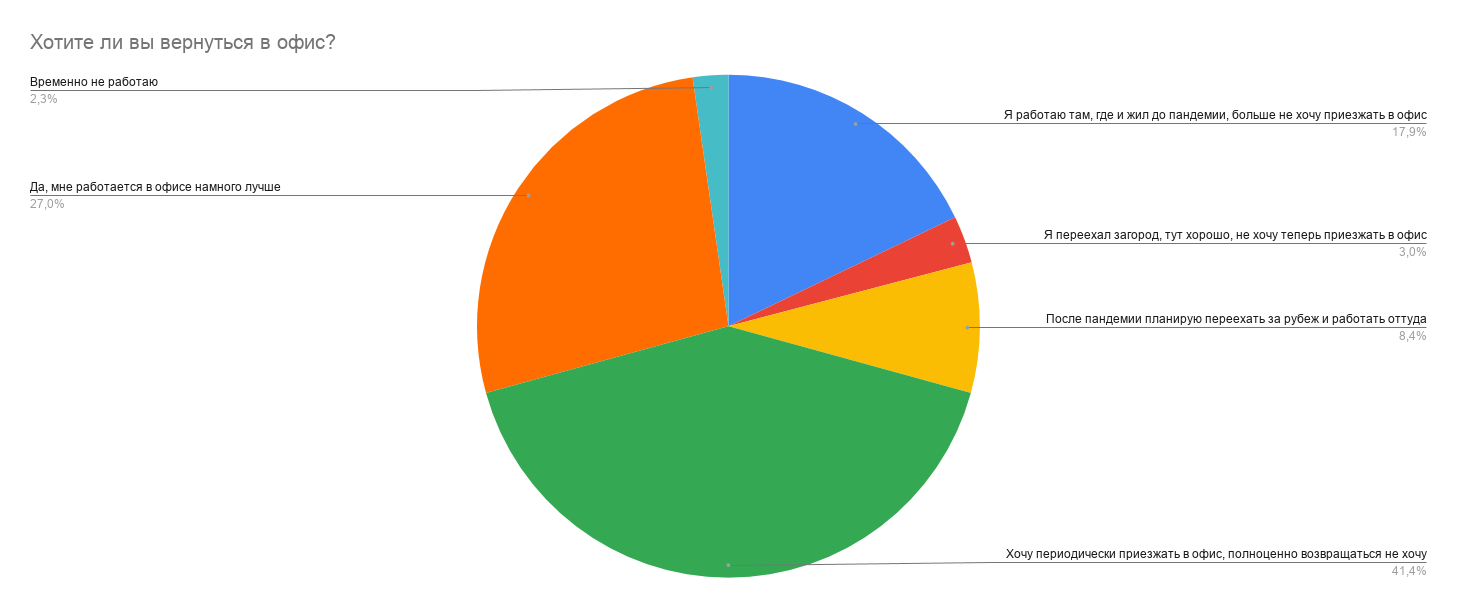Study: how did self-isolation affect the work processes in game development?
Has the amount of work increased during self-isolation? Do employees want to return to the office after the pandemic? How has remote work affected efficiency? These and other questions are answered by the results of a study that was jointly conducted App2Top.ru and the job search and recruitment service Talents In Games.
Methodology
The survey started in mid-June. It was called “Pros and Cons of quarantine existence“. In it, industry participants were asked to answer what they think about forced self-isolation, as well as how it affected their work processes. On the basis of the questionnaires received, the material was prepared.
Research audience
The active phase of collecting questionnaires lasted a week — from June 15 to June 22. A total of 422 people from 10 countries took part in the survey. The main part (74.1%) of them work in Russia.
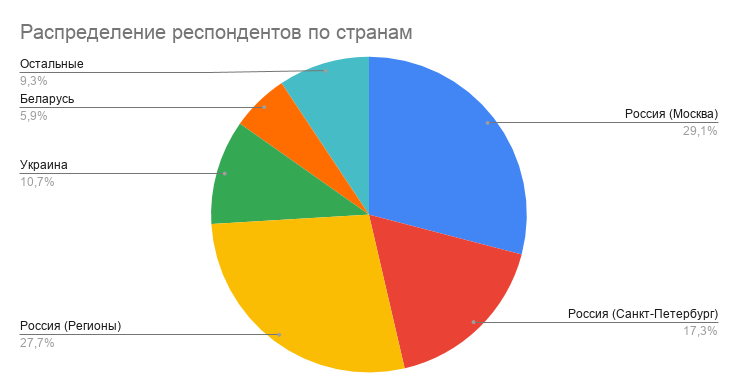
Most of the respondents are engaged in game design (19.7%), art (19.4%) and programming (10%).
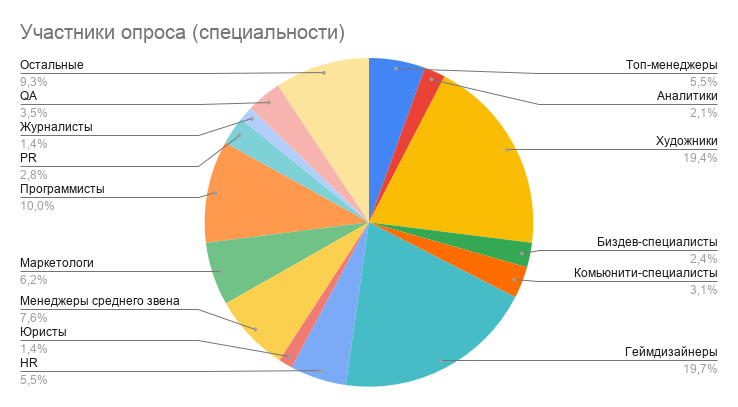
What advantages of quarantine life are highlighted by the employees of the game dev?
Most often, respondents noted that the advantage for them is the opportunity to save on transport and business lunches (56.4%). The answer was also very common that in the current conditions they began to spend more time with their relatives (44.2%). The third most popular plus is the improvement of the working environment (33.5%).
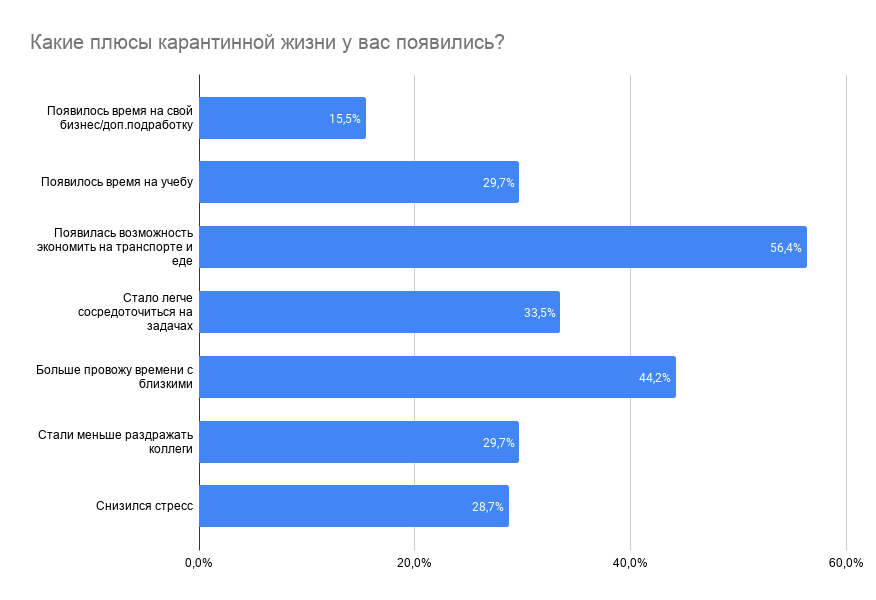
The distribution of the allocated advantages depends on the specialty. For example, one of the most popular answers among artists is that they have time to study. 41% of art specialists noted this. Also, many of them (32%) said that self-isolation freed up time for additional part-time work.
Almost half of programmers (41.3%) said that the advantage of remote work was the opportunity to focus better on work. This suggests that a solid part of the technical staff is uncomfortable working in the office in standard conditions.
What are the disadvantages of quarantine life highlighted by game dev employees?
The majority of respondents consider the main problem of conditional quarantine to be the inability to travel (50.1%). The lack of personal communication is only in second place (44.2%). Also, many are concerned about the “violation of the balance of personal life and work” (42.5%).
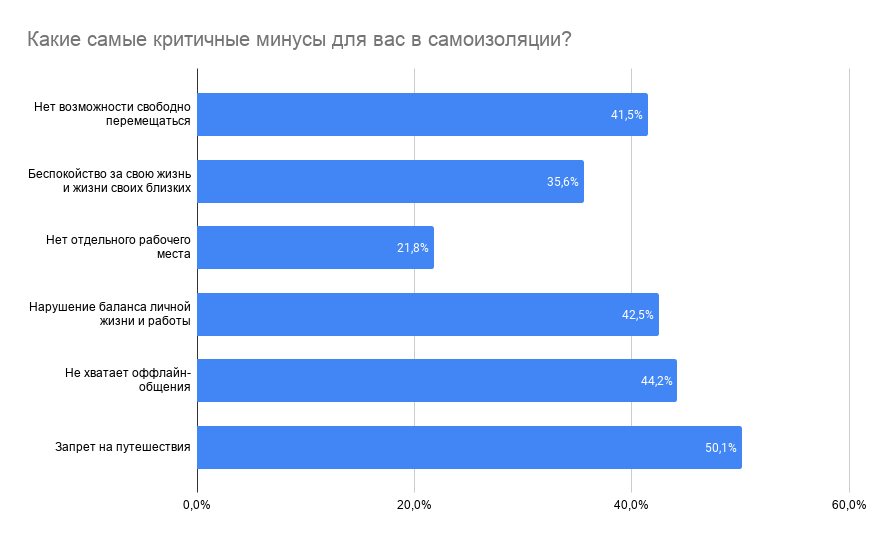
It also turned out that almost a quarter of all employees (21.8%) have nowhere to work at home. In other words, by the middle of June, the problem with the workplace remained relevant for many employees.
How did the remote format of work affect the volume of tasks?
For most of the industry (56.2%), the transition to self-isolation did not affect the number of tasks. This, at a minimum, suggests that most companies have effectively rebuilt the existing processes under new conditions.
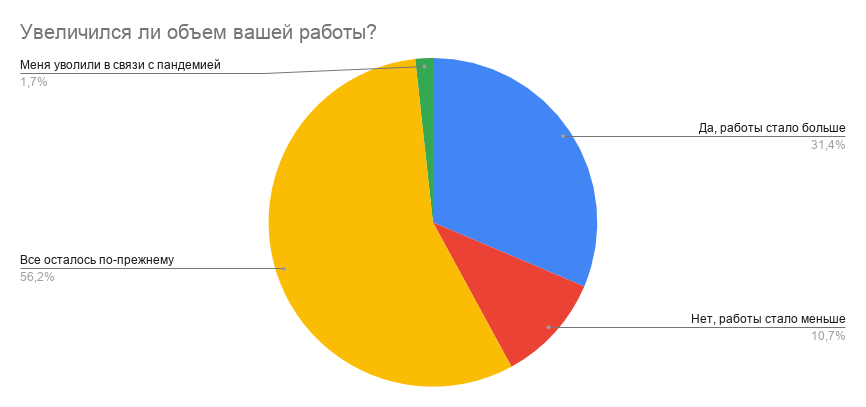
On the other hand, more than a quarter of respondents (31.4%) said that they had more work in the new circumstances. This may be evidence of both poor management “from above” and problems in working with your own time. We did not see a direct correlation between professions and the increase/decrease in workload.
How did self-isolation affect efficiency?
Only in 21.8% of cases, switching to remote work had a negative impact on the effectiveness of problem solving. At the same time, for almost half (48.2%) of respondents, self-isolation did not affect their performance in any way.
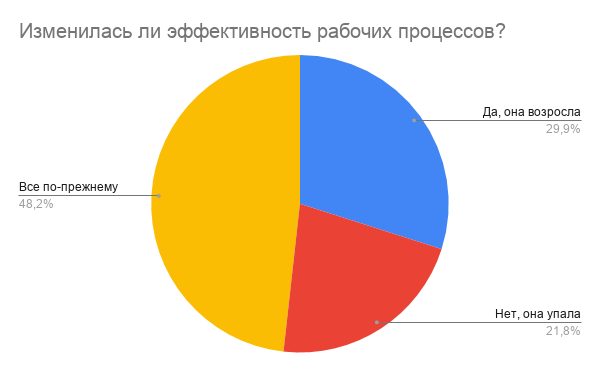
We did not find an obvious connection between specialty and efficiency outside the office. The only exception is programmers. 41.3% of them noted that the new conditions had a positive impact on how they began to perform tasks.
Do the industry want to return to the office after self-isolation?
70.7% of industry participants do not want to return to the standard office format of work. Only 27% of respondents stated that they work better from the office.
A solid part of the employees of game dev (41.4%) noted: we want to visit the office periodically, but we are not ready for a full return.
Here in the answers there is a direct connection between the specialty and the desire to return to the office. Those employees whose work tasks involve a lot of communication are primarily interested in the former working format. The others are not so eager for this.
They want to return to the office, where they “work better”:
- 50% of top managers;
- 31.8% of managers;
- 31.5% of game designers;
- 20.6% of programmers;
- 16% of artists.
How does the industry relieve stress during self-isolation?
The most popular way to relieve tension in the industry is to play games (64%). Food is in second place in popularity (45.6%). Also, many relieve stress by walking (42.9%).
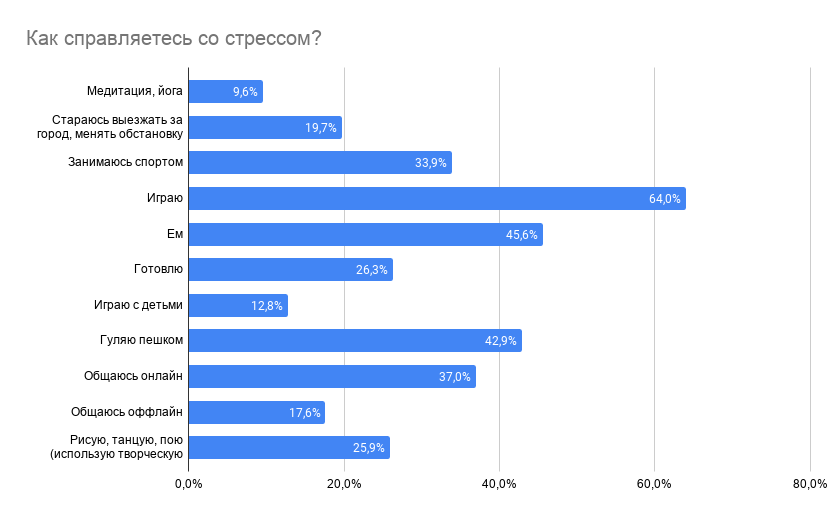
How comfortable is work and life considered in game dev?
Working conditions are evaluated:
- by 5 points, 34.6% of respondents;
- by 4 points, 37% of respondents;
- by 3 points, 19% of respondents;
- by 2 points 5.9% of respondents;
- by 1 point, 3.5% of respondents.
Personal life is evaluated:
- by 5 points, 24.6% of respondents;
- by 4 points 39.4% of respondents;
- by 3 points, 21.5% of respondents;
- by 2 points 9.7% of respondents;
- by 1 point, 4.8% of respondents.
These figures indicate that industry participants are generally more satisfied with their work than with life outside of it.
Our previous research:
- Study: how many participants of the Russian-speaking industry have switched to remote work?Research: Why is the gaming industry changing jobs?
- Research: What role does education play in game development?
- Is there any news?
Share it with us, write to press@app2top.ru

